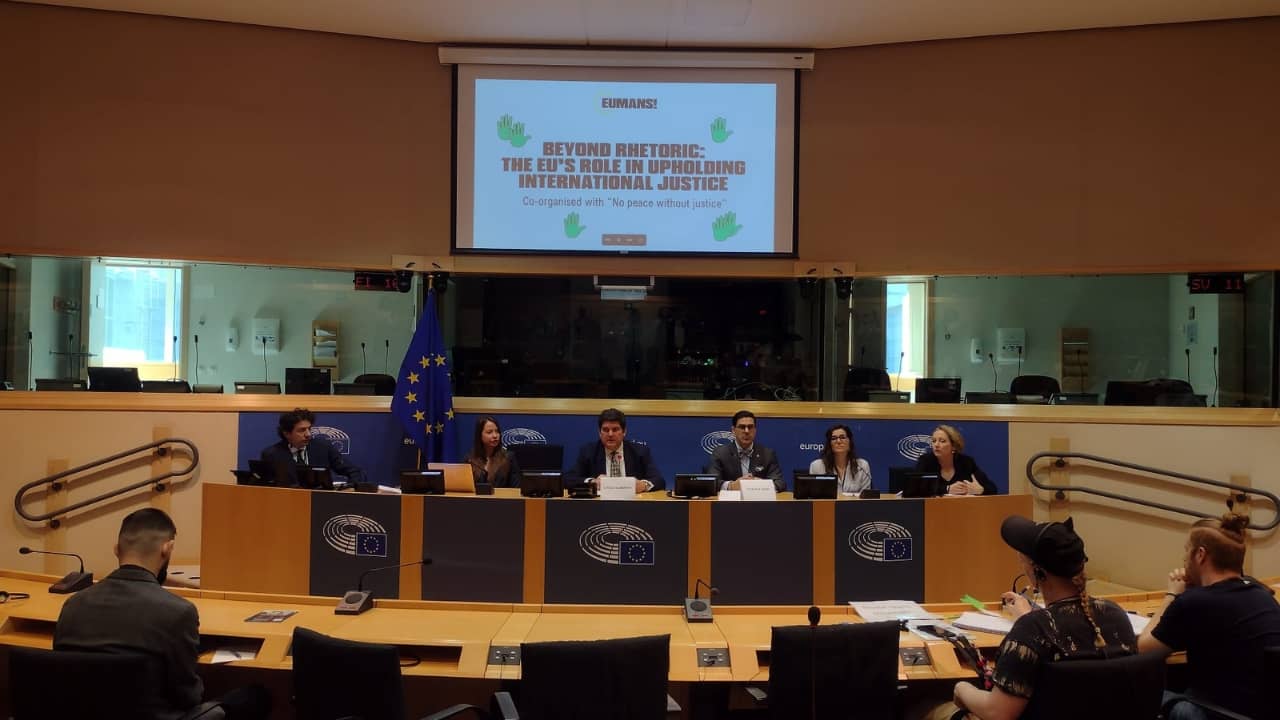On 7 December 2020, the Council of the European Union adopted two binding instruments: Council Regulation (EU) 2020/1998 and Council Decision (CFSP) 2020/1999, establishing a framework to sanction individuals, legal persons, entities or bodies, responsible for committing serious human rights abuses, inter alia by imposing severe economic and travel restrictions. Genocide, crimes against humanity, extrajudicial, summary, or arbitrary executions and killings, and sexual and gender-based violence are included in the list of crimes covered by these sanctions (Article 1 of the Council Decision provides an exhaustive list of crimes). The Decision also references customary international law and instruments of international law such as the Rome Statute of the International Criminal Court, as guiding the application of sanctions.
The adoption of such framework intervenes ahead of Human Rights Day, commemorated on 10 December, and in a similar line as Magnitsky-type legislation adopted in Canada, the United Kingdom, and the United States. The main point of divergence with the European sanctions’ regime is that corruption is not included as basis of activation. In this sense, a group of 15 civil society organizations welcomed this new EU tool for accountability, but that additional rules on corruption should be included as it “sustains the financial and political power of kleptocrats and human rights abusers and strips away public funds from the people, crippling systems of accountability and undermining the very principles of democracy”.
PGA welcomes the addition of this mechanism to address serious human rights violations at the EU level which will allow for a unified policy and strong political message, more so that imposing sanctions require that the Council act by unanimity upon a proposal from a Member State or from the High Representative (Article 5 of the Decision). On 15 September 2020, to commemorate the International Day of Democracy, PGA and the Raoul Wallenberg Centre for Human Rights (RWCHR) organized a Panel Discussion on Magnitsky-type “sanctions” and how legislators can contribute to preventing and fighting impunity for the violation of human rights.
On this occasion, Ms. Margareta Cederfelt, Member of the Swedish Parliament and President of PGA stated:
“Parliamentarians have a duty to address the climate of impunity by using all their prerogatives to ensure that those who violate the domestic and international rule of Law do suffer the consequences. Domestically, legislators vote on laws that can strengthen institutions such as the Judiciary apparatus. I urge all fellow parliamentarians to discuss and pass legislation that imposes targeted sanctions on individuals and legal entities involved in human rights abuses. We should all remain vigilant, as the protection and strengthening of democracy requires indefatigable and sustained collective efforts.
However, sanctions may not replace the exercise of criminal jurisdiction against alleged perpetrators of the most serious violations of human rights and international humanitarian law arising to the legal qualifications of genocide, crimes against humanity or war crimes.
States have an obligation to prosecute and bring to justice alleged perpetrators under relevant treaties and under customary international law, as victims have the inalienable right to access to justice, truth and reparations.”
The Chairperson of the PGA Italy National Group, Ms. Lia Quartapelle, MP (Italy), who recently launched a legislative initiative on targeted sanctions in her Parliament, stated in Rome:
“Now it’s time for all EU Member States that are not yet equipped with domestic legislation to give effect to EU sanctions to fill our normative gaps and be ready to take action in proposing targeted sanctions. While respecting the fundamental rights of all individuals concerned, we must be firm in supporting the quest for justice and accountability of victims of atrocities and their vulnerable communities: We have responsibility to use these Executive sanctions that will deliberated by the EU Council upon proposal by Member States or by the High Representative for Foreign and Security Policy as essential measures of prevention and deterrence, which will send a clear signal to perpetrators and ‘would-be’ abusers that violating human rights is not business-as-usual vis-à-vis the EU, and all international and domestic actors must respect and fulfil the Universal Declaration of Human Rights of 10 December 1948.”
Human rights and justice are cornerstones of the domestic and international rule of Law. United Nations’ Sustainable Development Goal (SDG) 16 aims to promote peaceful and inclusive societies. Peace and inclusion cannot become a reality without justice and respect of universally accepted human rights.




